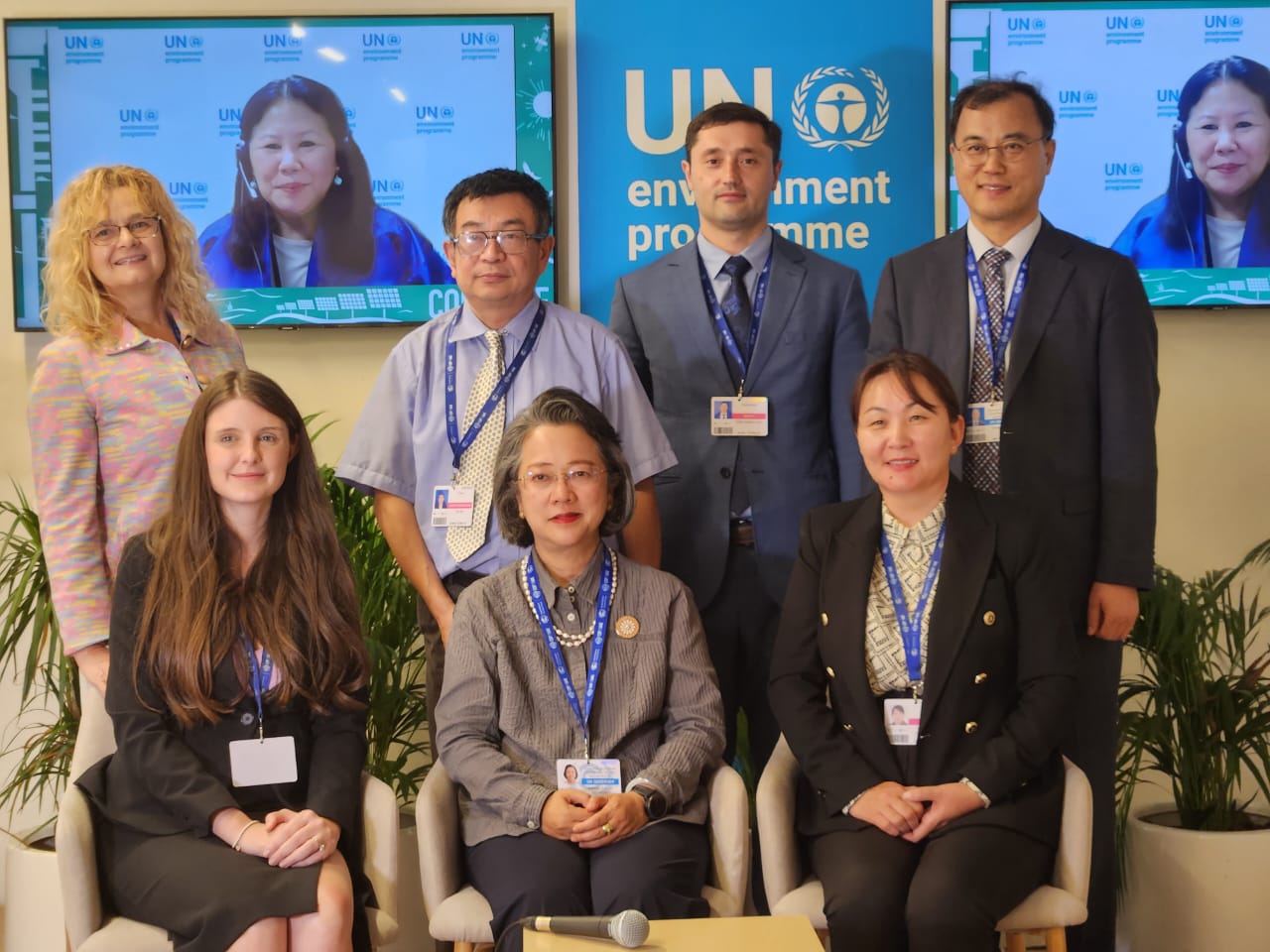Dubai – UAE – The Executive Director of the Regional Environmental Centre for Central Asia (CAREC) Zafar Makhmudov presented NDC situation in Central Asia at the side event on NDC commitment and emission gaps towards net-zero climate resilient development in Asia and the Pacific on December 8, 2023 at UNEP Pavilion.

Excerpts from Zafar Makhmudov’s report at the UNEP side event:
Countries of Central Asia have been amongst those regions to update their respective GHG mitigation ambitions within the framework of Paris Agreement. The Central Asian Governments formally adopted their commitments to increase the target to reduce its GHG emissions. As part of the global commitment to limit global warming to 1.5°C, the countries of the region have made the following voluntary commitments:
- Kazakhstan aims to achieve 15% reduction in greenhouse gas emissions by 2030. To achieve this goal, the Doctrine of Carbon Neutrality until 2060 is being developed.
- The Kyrgyz Republic plans to reduce greenhouse gas emissions by 16.63% by 2025 and by 15.97% by 2030.
- In Tajikistan, by 2030 reduce greenhouse gas emissions by 40% of the 1990 level.
- Turkmenistan, in its NDC, has expressed its commitment to limiting GHG emissions.
- Uzbekistan intends to reduce specific GHG emissions per unit of GDP by 35% by 2030.
The climatic conditions and associated impacts of climate change, as well as the post transition economies are common in most of the central Asian countries and there is a great potential for south-south cooperation to reduce regional vulnerabilities and generate mitigation co-benefits.
According to the FAO statistics, the total annual carbon sequestration potential in Central Asian countries can be conservatively estimated at 64 million tCO2e. Through adaptation and resilience building programmes on improved land management targeting traditional husbandry, enormous emission reduction can be claimed by these countries.
With a stronger presence of Central Asian region CAREC further promote new opportunities and help to create visibility of the region at the international arena on climate change can open up additional opportunities for partnership for national and international initiatives on climate change, adaptation and mitigation activities.
CAREC will further provide site support to the regional and national task force on NDC and relevant stakeholders in Central Asia to exchange of experience with peers from other countries and regions, mutual learning about well-tested technologies, practices, and innovations as part of their ambitions to achieve NDC targets.

